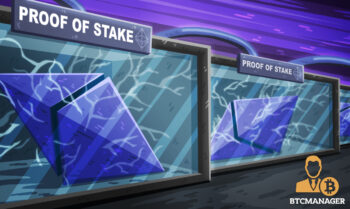2020-2-6 19:13 |
Telegram’s blockchain network, TON announced a new whitepaper, Catchain, which outlines a new block validation process to reach a consensus. The development community successfully tested the testnet kick starting a new wave of growth on the blockchain. This comes at a time the leading company, Telegram is facing a lawsuit from the securities exchange commission (SEC) for raising $1.7 billion USD in grams token sale in 2018.
New consensus algorithm, Catchain, launchedThe paper outlines a new Byzantine Fault Tolerant (BFT) protocol system, named Catchain, to specifically craft block generation and validation on the TON blockchain. While the BFT protocol consensus system is mainly connected to proof of stake systems (PoS), the current implementation uses three steps to validate blocks.
The document published by Nikolai Durov on Feb. 3, further explains the new consensus algorithm will allow the developers to put the theoretical pinning into practicality. Speaking to Coindesk, TON Labs developer, Mitja Goroshevsky, said,
“Consensus protocol is a central part of any blockchain and it needs to be described for the further analysis of the blockchain and its code.”
Despite the challenges faced by Telegram, with its lawsuit with the SEC ongoing, the blockchain’s development is still ongoing.
A three forked validation processThe consensus process will take a three forked validation process whereby some validator nodes will create the block, others selecting the blocks for approval and the rest of the nodes voting for a block to be approved.
Well what happens if the validators do not reach a consensus? If the validators are not able to reach a consensus, then the round is skipped and the new block is not committed to the blockchain. If this goes on for a few rounds, then the block will be reelected as new and validated to the chain.
While the process above seems a long process, the tests carried out in December had over 300 distributed nodes across the world, showed a block will averagely take 3-4 seconds to be fully validate to the block, way faster than traditional public blockchains such as Bitcoin and Ethereum.
origin »Bitcoin price in Telegram @btc_price_every_hour
Time New Bank (TNB) на Currencies.ru
|
|












